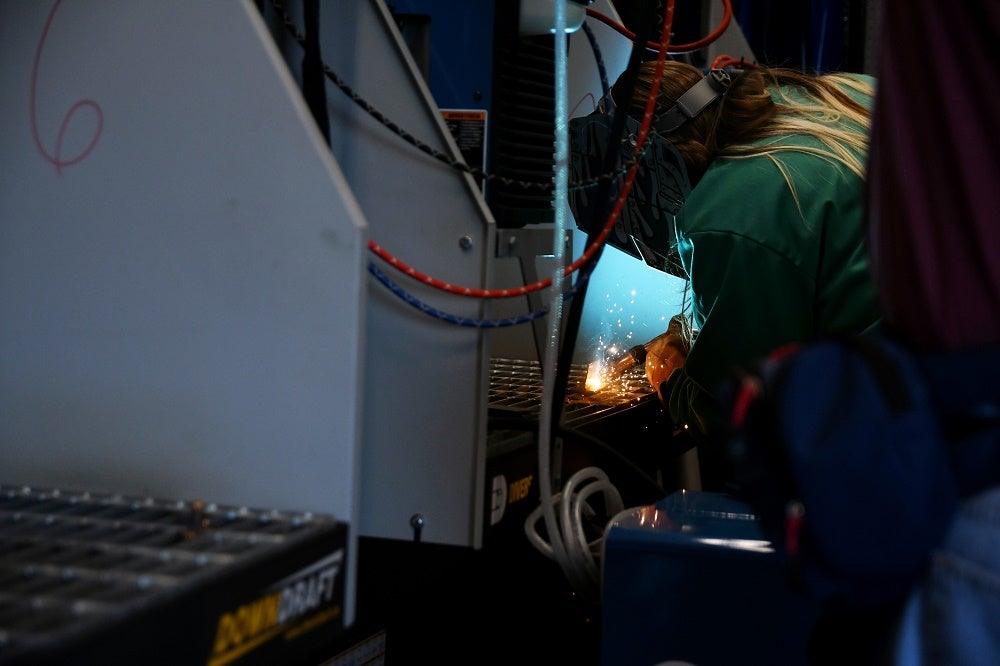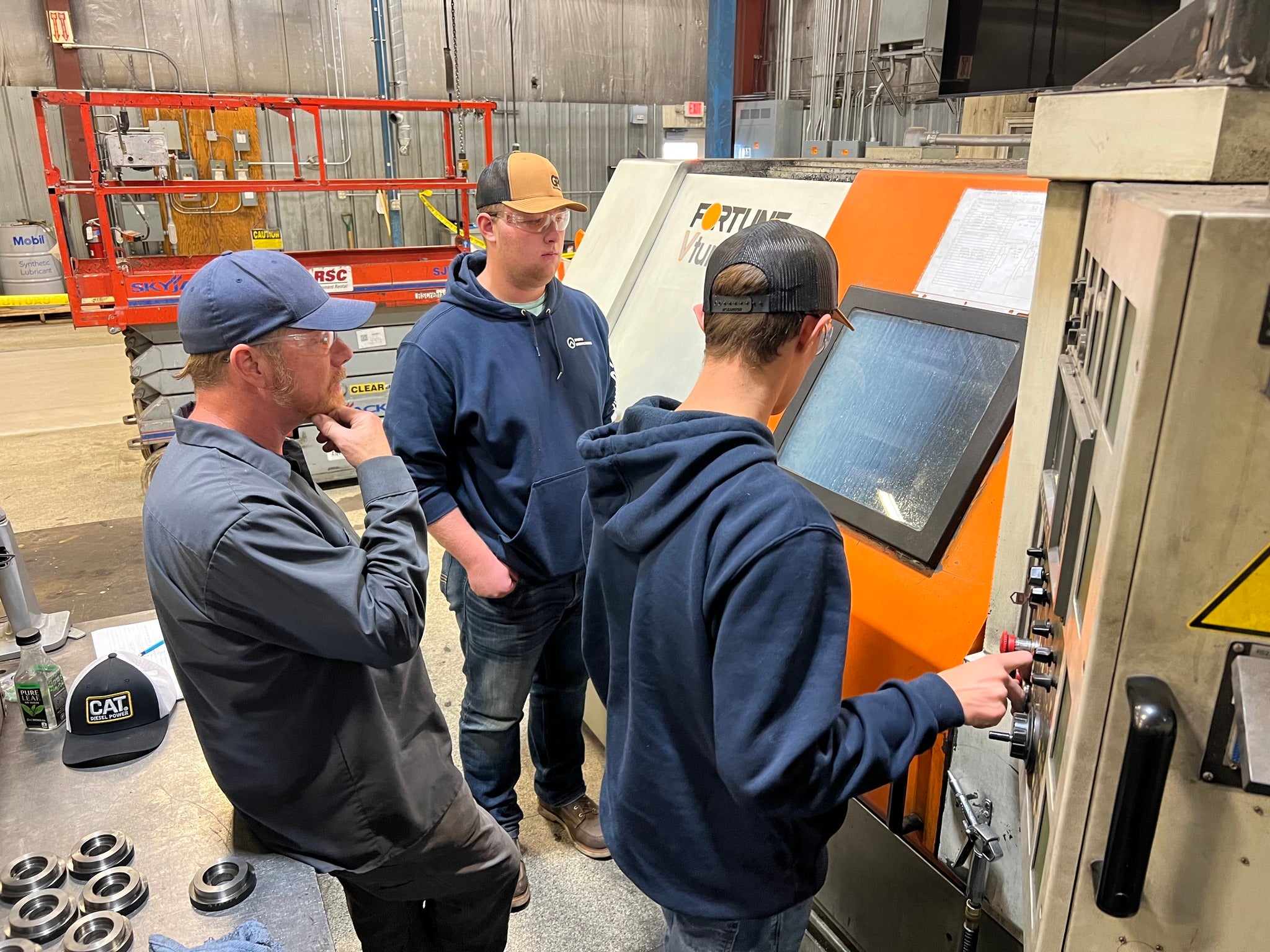Inmates at the Taycheedah Correctional Institution for women in Fond du Lac are learning key job skills to help them get employed once out of prison, with some earning a certificate in welding.
Launched in March, the welding program came about through a partnership with the Wisconsin Department of Workforce Development (DWD) and the Moraine Park Technical College in Fond du Lac. It enrolls eight students at a time. Eight women have received certificates so far this year.
The women participate in a 14-week boot camp program where they gain technical skills in different types of welding. They learn how to read blueprints and designs, as well as how to select the right types of welding process for each job.
News with a little more humanity
WPR’s “Wisconsin Today” newsletter keeps you connected to the state you love without feeling overwhelmed. No paywall. No agenda. No corporate filter.
“They’re really learning a lot of skills that can train them for entry level welding positions,” said Rachel Fryda-Gehde, a social worker at Taycheedah. “That way, when they get out in the community, they can have the criteria met just to walk into a job and say, ‘I’ve got a certificate. I know the skills. I know the machinery.’”
In March, a mobile welding lab with eight welders was installed in the correctional institution, allowing eight women — out of the 926 inmates — to be in the class at a time. There’s currently a waiting list for more inmates to get in, Fryda-Gehde said.
“It’s something different,” she said. “I think that, for women, there’s such opportunity for them to get into these kinds of fields. It’s not something that they’ve always thought they could do.”
Fryda-Gehde said this is one way to help keep these women from re-offending. She frequently hears from inmates that once they get out of prison they get bored, and that sometimes can lead to spending time with bad influencers and making unlawful decisions.
Additionally, she said upon release from prison, these women might not know where to begin building a new life. They don’t know what skills they have, and they don’t have any guidance, she said.
“They kind of just get lost in the shuffle with things,” she said. “They get stuck.”
A job center at the prison opened in September, allowing women to search for jobs and learn soft skills from center staff to use in their interviews. After women apply for jobs, potential employers can email them to set up phone interviews.
Providing experience in welding is one way for the state to meet its demand for welders. Employment projections show demand for welders and fabricators will increase 6.7 percent from 2016 through 2026, according to the DWD.
In addition to the welding class, women can take classes such as barbering and cosmetology; building, maintenance and construction; institution food production; office software applications and practical computer skills.
“(Giving) them something positive and meaningful to go back to helps them make connections with people in the community that would be positive for them and gives them a purpose,” Fryda-Gehde said.
Looking ahead, Fryda-Gehde said the prison is hoping to connect with staffing agencies to host resource fairs and mock job interviews, including giving the inmates tips on how to talk to potential employers about having a criminal record.
Wisconsin Public Radio, © Copyright 2025, Board of Regents of the University of Wisconsin System and Wisconsin Educational Communications Board.







